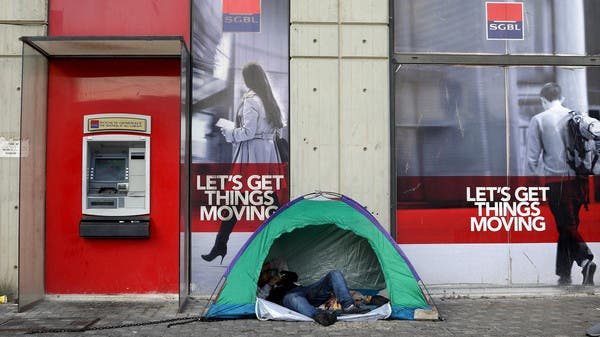By Laila Bassam

BEIRUT – A Lebanese judge has ordered a protective freeze on some property assets of SGBL bank, its CEO and two board members in a case filed by a Jordanian businessman seeking repatriation of millions of dollars in deposits, a judicial document showed.
It was the first such move in cases brought against Lebanese lenders by customers seeking access to dollar deposits frozen under informal capital controls. The curbs, imposed by the banks in late 2019, also largely blocked customers from making transfers abroad.
The case involving SGBL could spur others to pursue similar action against assets of board members of Lebanese banks, although a legal expert said that what is really needed is legislation to formalise and standardise capital controls.
“This crisis cannot be solved on an individual level and there needs to be a solution for all depositors … There is a lot of unpredictability and no transparency,” said lawyer Nizar Saghieh, executive director of Beirut-based nonprofit research and advocacy group Legal Agenda.
Lebanese and foreign depositors have filed many lawsuits against domestic banks who refused to transfer their funds abroad in line with the controls, which have not been formalised in law. No rulings have so far been made on such cases in Lebanon or abroad.
Beirut Execution Judge Faisal Makki said in the Nov. 4 document, seen by Reuters, that based on a request by Talal Abu-Ghazalah, a precautionary seizure was ordered to guarantee $1.035 million in debt owed him by Societe Generale de Banque au Liban (SGBL) that the judge deemed to be “probable”.
The document, which is not public, was issued by a Ministry of Justice department responsible for the implementation of judicial rulings and was first reported by Lebanon’s Al Akhbar newspaper.
ADVERTISEMENT
SGBL, responding to a Reuters query, said it had deposited a bank cheque with the judge as a guarantee in lieu of the property assets while the bank files an opposition against the decision.
“(SGBL) shall file an opposition against this groundless decision with the aim to rescind it,” it said in a statement, adding the “alleged potential debt” of $1.035 million was claimed by Abu-Ghazalah as interest accrued on his deposits.
CAPITAL CONTROLS
SGBL added it had “duly fulfilled all its contractual and legal obligations towards the client by making available to him all judicially claimed amounts”.
A judicial source told Reuters that SGBL had issued Abu-Ghazalah a bank cheque for his $23 million in deposits but the Jordanian businessman refused to accept the cheque, which is not transferrable abroad because of the financial crisis.
The source said SGBL then closed Abu-Ghazalah’s account. Two judicial sources told Reuters that some banks have been issuing bank cheques to depositors pursuing legal action in such cases and then closing their accounts.
A banking source said Abu-Ghazalah was claiming the interest lost since SGBL issued the bank cheque for his deposits.
ADVERTISEMENThttps://e044ee2b51a49f2e744e6e699868b89e.safeframe.googlesyndication.com/safeframe/1-0-37/html/container.html
Abu-Ghazalah declined comment on the case when approached by Reuters. SGBL declined to comment on the status of his deposits or confirm whether it had issued him a cheque against his holdings in the bank, citing banking secrecy considerations.
Judge Makki declined to comment on an ongoing case.
Earlier this year the central bank governor called for capital controls to be standardized so depositors are treated equally and fairly.
The country’s caretaker Prime Minister Hassan Diab has said the government would present a draft law to standardize the controls, but this has yet to happen as the country has been hit by a series of crises, including a huge explosion in Beirut on Aug. 4 and slow progress in forming a new government.
Lebanon’s financial system has collapsed under the weight of one of the world’s biggest public debt burdens. The Lebanese pound has lost around 80% of its value since October 2019.
Domestic banks had for years attracted savers from Lebanon and abroad with high interest rates and funnelled deposits to the state, which defaulted on its foreign currency debt in March. The bulk of the sovereign debt was held by Lebanese lenders.
Financial strains came to a head last year as capital inflows slowed and protests about the economic crisis erupted against the political elite. Rooted in decades of corruption and waste, the economic crisis is Lebanon’s worst since its 1975-1990 civil war.
Société Générale S.A. , often nicknamed “SocGen” is a French multinational investment bank and financial services company headquartered in Paris, France. It is France’s third largest bank by total assets, seventh largest in Europe or seventeenth by market capitalization.
(Reuters)

Leave a Reply
You must be logged in to post a comment.